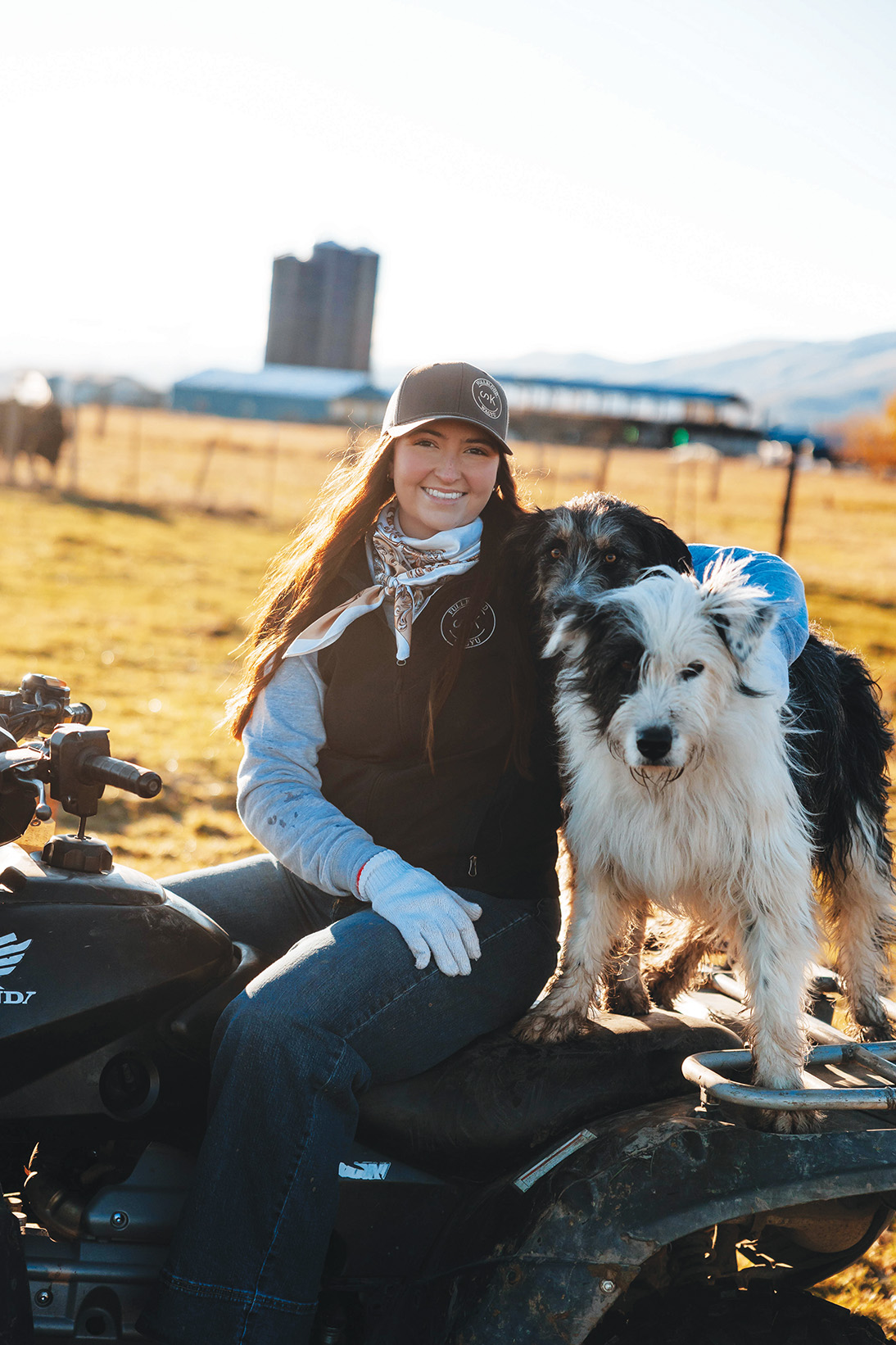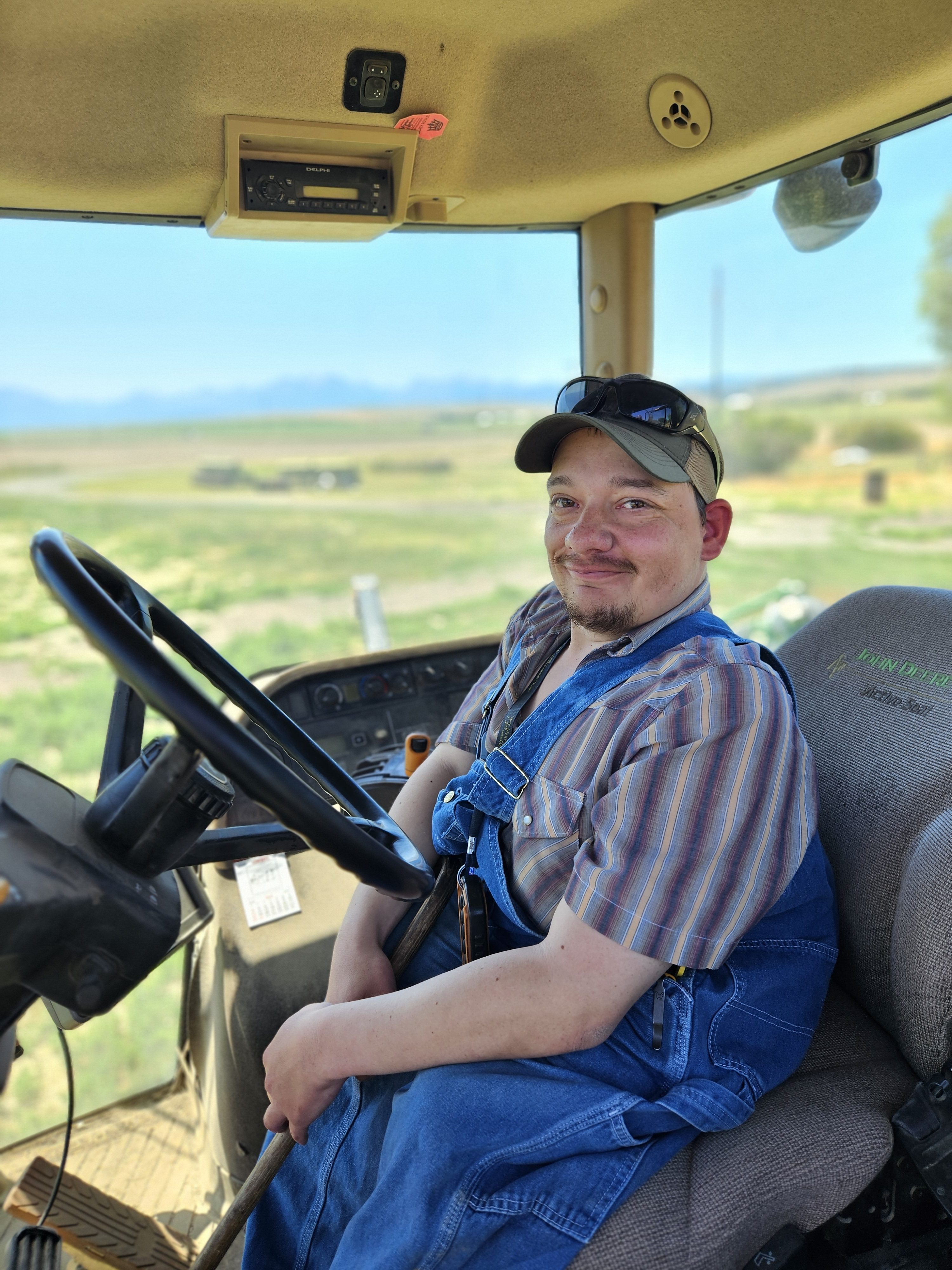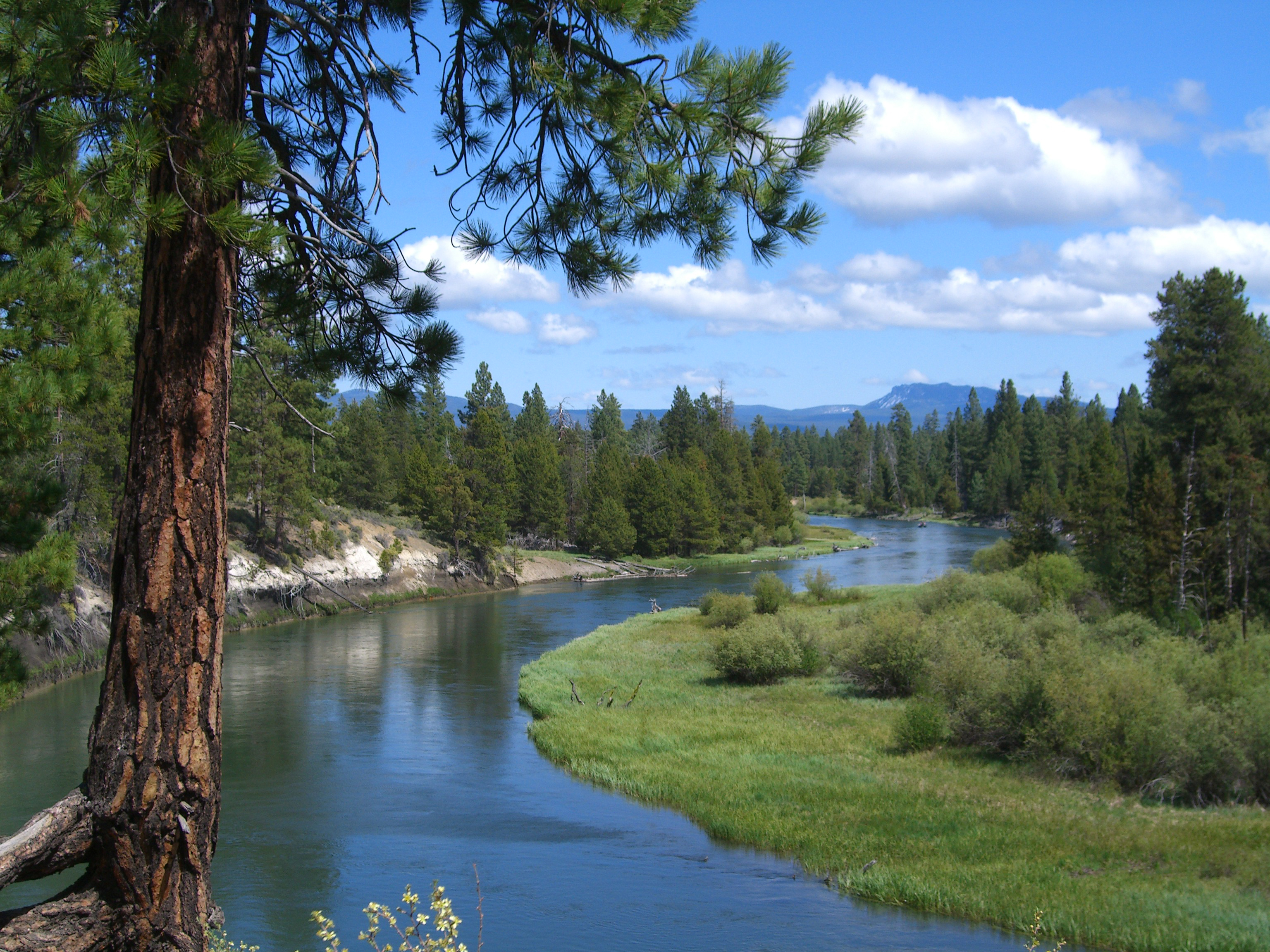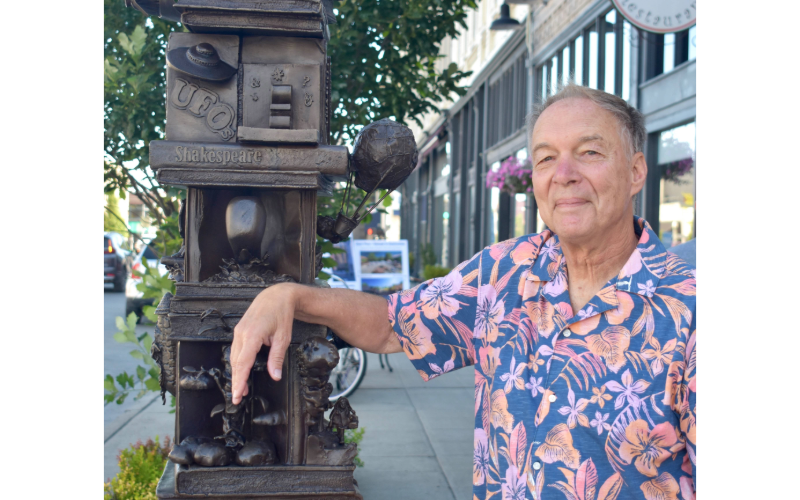How a baseball star ended up in Baker
Published 2:15 pm Friday, October 22, 2021

- Joe Rudi, right, his wife, Sharon, left, with their daughter, Heather, who is a lieutenant colonel in the U.S. Air Force.
If not for a bird he’d never heard of, and also a fogbound Seattle airport and a mechanic who worked Sundays, Joe Rudi might never have ended up in Baker City.
Trending
And that, from Rudi’s perspective almost half a century later, would have been a pity.
“Baker was a wonderful town to raise our kids,” Rudi, 75, said in a phone interview on Oct. 19 from the home in Florida where he and Sharon, his wife of 55 years, live most of the year.
“But when you get into your 70s, shoveling snow is not high on your list,” he said with a chuckle.
Trending
Prior to the pandemic, the Rudis returned to Baker City during the summer.
Mike Rudi, the oldest of their four children, lives here.
“We love it there,” Joe Rudi said. “It’ll always be home.”
Rudi will have another reason to travel across the country in 2022.
That’s when he’ll be a member of the third group to be inducted into the Hall of Fame for the Oakland Athletics Major League Baseball franchise.
Rudi, who played left field, was a key player on the Oakland teams that won three consecutive World Series titles — in 1972, 1973 and 1974.
Rudi, who is among the more accomplished athletes to ever live in Baker City, made a leaping catch, against the wall, in the ninth inning of the second game of the 1972 series against Cincinnati, preserving Oakland’s 2-1 lead. Earlier in the game, Rudi hit a solo home run.
In the seventh and deciding game of that series, Rudi caught Pete Rose’s fly ball that clinched the world championship for the A’s.
Rudi hit .333 with four RBI in both the 1973 World Series, when Oakland beat the New York Mets, again in seven games, and in the 1974 Fall Classic when the A’s completed their threepeat by beating the Los Angeles Dodgers in five games.
Rudi’s individual accolades make for a lengthy list, as well.
He was named to the All-Star team three times, won three straight Gold Gloves (an award given to the best defensive player at each position) and finished second on the Most Valuable Player ballot for the American League in both 1972, when he led the American League in hits with 181, and 1974.
Rudi hit 179 home runs during his 16-year Major League career. He retired after the 1982 season, when he returned to Oakland after playing from 1977-80 for the California Angels, and the 1981 season with the Boston Red Sox.
Rudi said he actually learned in January 2020, just before the pandemic started, that he had been picked to join the Athletics Hall of Fame.
“I was really surprised,” Rudi said.
His first phone call was to Sal Bando, his teammate on all three World Series-winning teams who is also part of the Class of 2022 for the Athletics Hall of Fame.
The induction ceremony was postponed in 2020 and again this year.
Rudi said he expects it will be scheduled for September 2022, just before the 50th anniversary of the first of the A’s three straight World Series titles.
“I’m looking forward to it,” he said.
Becoming acquainted with Baker
Rudi marvels now at the series of events, some of them coincidental, that brought him to Baker City.
He was born in Modesto, California, and grew up in Waterford, a town about 20 miles from Modesto, before his family moved to Modesto in 1961.
In a 1997 keynote speech to the Oregon Community Foundation’s annual convention, Rudi talked about how his dad, Oden, who was of Norwegian descent, worked from dawn to dusk as a dairy farmer and never saw his son play baseball, or any other sport, until he made it to the major leagues.
After serving in the Marine Corps, his first professional baseball assignment was to a Class A minor league team in Modesto, an affiliate of the Oakland A’s.
Rudi said 14 players from that team went on to play in the major leagues — an almost unheard of success rate for a single minor league squad.
That group included the core of the A’s teams that would become the first to win three straight world championships since the New York Yankees in the late 1940s and early 1950s.
That was, Rudi says with a laugh, a much different era in baseball.
There was no free agency. No multimillion-dollar salaries.
But players also tended to stay with the same franchise, if not for their entire careers then at least for many years.
So it was with Oakland.
“You could just see the progress of our team,” Rudi said. “We just reached a crest during those three years (of winning the World Series).”
Although claiming three straight world titles is an accomplishment few major leagues can boast, Rudi said his memories are still tinged with disappointment.
He believes that if the team had stayed together — one of its key cogs, starting pitcher Jim “Catfish” Hunter, went to the Yankees after the 1974 season — the A’s could have won two or three more World Series.
Most of the key players, Rudi said, were still in their 20s or early 30s.
One of those players was Gene Tenace, and he supplied the connection, albeit an indirect one, that eventually led Joe and Sharon Rudi to Baker City.
The link was bird hunting.
Rudi said he used to hunt with Tenace during the offseason, mainly in California.
Occasionally, Rudi said, Harmon Killebrew, who hit 573 home runs during his career and was elected to the Baseball Hall of Fame in 1984, would be around for Oakland’s batting practice.
Once he learned that Rudi and Tenace were wingshooters, Killebrew tried, and for some time failed, to cajole the pair into visiting him at his Idaho home — Killebrew was born in Payette — after the season to hunt birds.
“He wanted us to go chukar hunting,” Rudi said. “I had never heard of a chukar.”
Eventually, in late 1974, Rudi and Tenace made the trip to Idaho where they became acquainted with the fast-flying game bird, which is a type of partridge.
The pair stayed with a friend of Killebrew’s, Jack Gordon.
Gordon owned a farm equipment dealership in Ontario. It was through Gordon that Rudi met two other hunters — Mike Nelson and Dave Bobo — both of whom had moved from Rudi’s home state of California to a place up the freeway from Ontario, a place called Baker.
Rudi knew no more about the town than he had known about chukars.
Gordon called Nelson and Bobo because they owned bird dogs, German shorthair pointers.
“Jack called them and told them a couple of ballplayers were coming to town,” Rudi recalls. “That’s how I met Mike Nelson and Dave Bobo.”
The next year, 1975, Rudi and Tenace returned, staying again at Gordon’s place on the Oregon side of Brownlee Reservoir about 14 miles north of Huntington.
During that trip, Rudi visited Baker for the first time.
“It was just a beautiful little place, and we really enjoyed being there,” he said.
But it wasn’t just the scenery and the historic buildings that entranced Rudi.
During the trip the alternator on his car failed.
On a Sunday.
Rudi, who was supposed to drive back to California the next day, figured his first stay in Baker might last a bit longer than he expected.
But Nelson called Clark Auto Electric, and the repair shop’s longtime owner, Jerry Goodwin, fixed Rudi’s car.
That single event did much to convince Rudi that Baker was the sort of place he might be interested in raising his family.
“People take care of one another,” he said.
Finding the perfect property
The next winter, late in 1976, the Rudis, with their young sons Mike and Scott, planned to fly to Seattle for a vacation, and possibly drive to Baker.
But en route their plane was diverted from fogged in Sea-Tac Airport to Portland.
When they landed they decided, rather than drive north to Seattle, to head east to Baker.
The family stayed for three days with Mike Nelson at his family’s home along Salmon Creek, near the base of the Elkhorns northwest of town.
One day the group went sledding up Marble Creek.
On the drive down, as Rudi looked across the Baker Valley and the snowy Wallowas beyond, he realized that the spread in the foreground, a pasture fringed by the pine and fir forests of the Elkhorns, was about as pretty a place as he had seen.
“I told Mike, if something like that ever came available, to let me know,” Rudi said.
About four months later, while Rudi was beginning his first season as a California Angel following a trade from the A’s, he got a phone call from Nelson.
“Believe it or not, that ranch is for sale,” is what Rudi recalls Nelson telling him.
Joe and Sharon didn’t hesitate.
(Although Joe told Nelson not to mention to the seller that the buyer was a major leaguer; “I didn’t want them to jack up the price,” Rudi recalls with a laugh.)
The Rudis moved to the ranch permanently.
Later in 1977 their daughter, Heather, was born, followed by their third son, Shaun, in 1979.
“This is where we wanted to be,” Rudi said.
Baker’s link to baseball strengthens
It turned out that Rudi wasn’t the only baseball star who ended up buying property near Baker City.
In a sort of preview of his post-retirement career in real estate, where he joined the firm that Nelson started in Baker City, Rudi was largely responsible for teammate Carney Lansford’s arrival.
Lansford was a rookie with the Angels in 1978, Rudi’s second year with the team.
Rudi said they roomed together on road trips and became good friends.
During the Major League Baseball strike that took almost two months of the 1981 season, from June 12 through Aug. 8, Rudi invited Lansford and his wife to travel to Oregon and stay with the Rudis. By then both Rudi and Lansford were playing for the Boston Red Sox.
He said the Lansfords spent most of the strike at the Rudis’ ranch.
The Lansfords ended up buying a house nearby, along Mill Creek.
Lansford, a third baseman, had a 14-year major league career that, like Rudi’s, was marked by both individual accolades and team achievements. Lansford was the American League batting champion during the strike-shortened 1981 season, and, after being traded to the A’s, Rudi’s old team, Lansford was a member of Oakland’s 1989 World Series-winning squad.
Reviving BHS baseball, imagining the Baker Sports Complex
Rudi retired after the 1982 season.
His oldest son, Mike, was a freshman at Baker High School that fall. Rudi was chagrined to learn that BHS didn’t have a baseball team.
“How can that be?” was Rudi’s reaction.
With time to devote to the matter, Rudi, along with other volunteers and with help from his son and other students, raised $20,000 to revive the Bulldogs’ baseball program.
The team played at Leo Adler Field, with Dwight Berry as the first head coach. Rudi helped, too, although in 1986 and 1987 he also worked for the A’s as a batting and outfield coach.
Along about that time Rudi and others started to envision a baseball field in the vacant space north of the high school.
That would be much more convenient, they reasoned, than having baseball players travel to Leo Adler Field, which is just north of the Baker County Fairgrounds.
Rudi said he was confident that promoters could raise the money, meaning the Baker School District, which owned the property north of the school, wouldn’t have to.
Rudi said BHS principal Jerry Peacock and Superintendent Arnold Coe both endorsed the project — provided the district didn’t have to pay for it.
Although Rudi’s initial idea was a single baseball field, he said Peacock pointed out that the project would need to include softball fields as well.
And it turned out that the 28-acre space was large enough to accommodate two baseball fields on the east side, and two softball fields on the west, with walkways and a concession stand/announcer’s booth in the center, as well as an indoor batting facility — what became the Baker Sports Complex.
Rudi said he was amazed by the generosity of local residents, companies and philanthropic foundations that made the Complex possible.
“It was way beyond our wildest dreams,” he said. “It was an unbelievable community thing that everybody got behind.”
The initial $2.3 million project included donations of $560,000 from the estate of Herman and Blanche Steiger, longtime Baker City residents. Herman Steiger was a fixture at BHS sporting events for decades.
The Leo Adler Foundation donated $350,000.
Rudi said Steve Haberle of Baker City was the “unsung hero of that whole complex,” being involved with “every facet.”
“He never gets the credit he should have,” Rudi said of Haberle.
Rudi said the efforts of Kathleen Chaves of Baker City, who oversaw the project and wrote many grant applications, were also crucial to the Complex’s success.
Chaves said she was grateful when Rudi asked her to help. She said she often took her brother to watch Oakland A’s games when Rudi was a star on the team during the 1970s.
Each of the two softball fields and two baseball fields at the Complex is named in honor of a major contributor.
There is a Steiger Field, an Adler Field, a Rudi Field and a Lansford Field.
Both Sharon and Joe Rudi were involved in Nelson Real Estate, the firm started by Mike Nelson.
They continued to live in Baker City, although they returned to Modesto for a few years in the late 1990s and early 2000s to be closer to their parents.
Joe’s main hobby, one that dates back decades, is amateur radio — “ham” radio as it’s known. His call sign is NK7U.
After both Rudis turned 65 they retired and bought an RV in which they traveled around the U.S. Their current home is in The Villages, a “golf cart community” about 30 miles north of Orlando, Florida. Rudi said he and his wife both enjoy golf, and there are many courses in the area.
But even as the couple enjoys their retirement on the East Coast, Rudi said they will always consider Baker City their true home.
And he will always marvel at how they ended up settling there.
“Everything just sort of came together to get us to Baker.”
“Everything just sort of came together to get us to Baker.”
— Joe Rudi, three-time World Series champion









